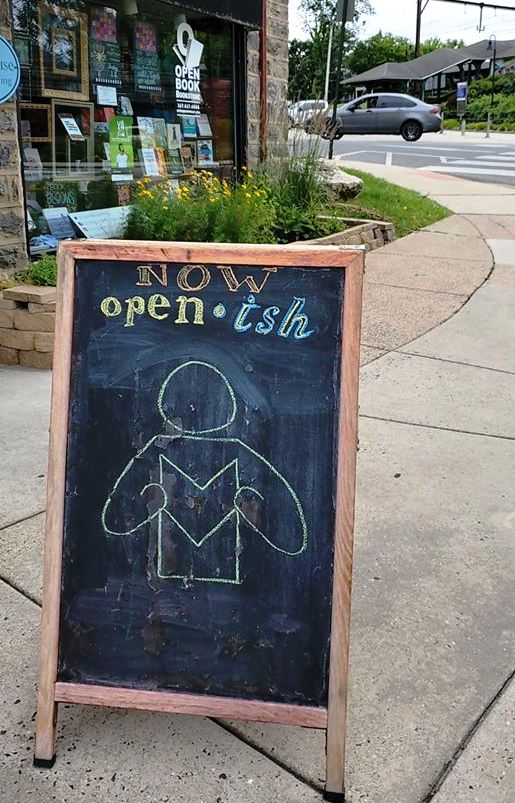 With Labor Day weekend marking the unofficial end of summer, the most challenging fall and holiday bookselling season in memory is beginning. Book sales continue to climb slowly out of the huge hole created by the spring lockdown--online sales are generally strong and many stores have reopened, taking an array of safety measures. Still, most stores have lost significant sources of sales, including from in-store events, off-site conferences and other events that aren't being held, school sales--and from fewer customers able to browse and find books they hadn't been seeking. And this holiday season will be affected by a bitter presidential election that may not be settled immediately, the ongoing pandemic, widespread unemployment and a battered economy.
With Labor Day weekend marking the unofficial end of summer, the most challenging fall and holiday bookselling season in memory is beginning. Book sales continue to climb slowly out of the huge hole created by the spring lockdown--online sales are generally strong and many stores have reopened, taking an array of safety measures. Still, most stores have lost significant sources of sales, including from in-store events, off-site conferences and other events that aren't being held, school sales--and from fewer customers able to browse and find books they hadn't been seeking. And this holiday season will be affected by a bitter presidential election that may not be settled immediately, the ongoing pandemic, widespread unemployment and a battered economy.
In a survey of retail trends for the rest of the year, the New York Times noted: "Thanksgiving, the traditional start of the holiday shopping calendar, is still more than two months away, but retailers pummeled by the coronavirus pandemic have already been making decisions about inventory, staffing and how best to connect with customers skittish about visiting crowded stores during a pandemic. The result will be a 2020 season that is transformed in fundamental ways--and unlikely to make up for the severe drops in revenue caused by the shutdowns."
The paper noted that "rather than enticing shoppers into stores with holiday sales events, retailers like Walmart and Target recently said they would try to temper the crowds by closing on Thanksgiving Day and putting their best deals online earlier than usual," as soon as the beginning of November. "Instead of conversing with browsing shoppers, many store workers will be spending their time handing off purchases to people who pull up to the curb in their car."
"The wild card is going to be the traffic we get through physical stores, given the sensibility of customers around Covid," said Peter Nordstrom, president and chief brand officer of Nordstrom. "And no one's got a crystal ball on that."
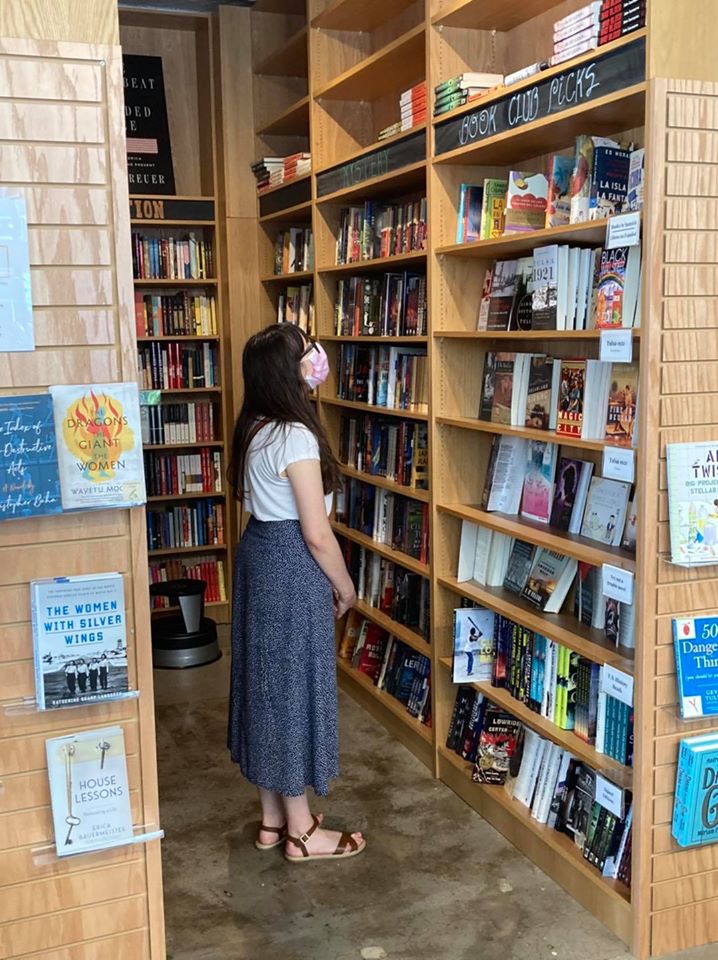 Another wild card is spending. "Because some people are not spending on eating out and going to the theater and traveling, they actually have extra money to buy an aspirational product, which helps luxury and higher-end products," Marie Driscoll, managing director of luxury and fashion at the research firm Coresight Research, told the Times.
Another wild card is spending. "Because some people are not spending on eating out and going to the theater and traveling, they actually have extra money to buy an aspirational product, which helps luxury and higher-end products," Marie Driscoll, managing director of luxury and fashion at the research firm Coresight Research, told the Times.
On the other hand, widespread unemployment with little federal aid is putting an obvious damper on holiday expectations. "It's a very important time of year spiritually, and people will make sacrifices so that they can go get Christmas presents," said Kenneth Rogoff, a professor of economics at Harvard University. "But it's hard to see a blowout Christmas season when you have a 15% unemployment rate."
Online selling will continue to grow. "What we're really preparing for is probably the greatest e-commerce penetration within a holiday season that we've ever seen, and probably the largest year-over-year growth in online shopping," Michelle Cordeiro Grant, CEO of Lively, an intimates and loungewear brand, told the Times.
The jump in online sales and cautiousness about buying holiday inventory is increasing the importance of the supply chain in general. And here again there are warning signs. Robert Carter, chief information officer of FedEx, has referred to the jump in e-commerce business as "getting sling-shotted into 2023."
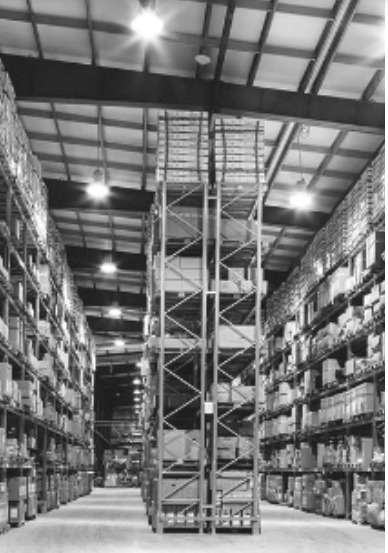 Supply Chain Pressure
Supply Chain Pressure
The book supply chain is coming under special pressure. As outlined by the New York Times at the end of August, more titles are being published this fall because many were postponed from the spring after the pandemic struck, squeezing printers just when the two largest book printers are in jeopardy: Quad is for sale, and LSC declared bankruptcy in April and its assets are being sold this month.
At the same time, the Times noted, "there has been a surprising spike in sales for print books, a development that would normally be cause for celebration, but is now forcing publishers to scramble to meet surging demand" from blockbuster titles as well as "older titles, particularly books about race and racism, children's educational workbooks and fiction."
Sue Malone-Barber, senior v-p and director of publishing operations for Penguin Random House, told the newspaper: "The infinite printer capacity hasn't been there for a while. Now enter Covid and a huge surge in demand, and you have an even more complex situation."
As a result, "Print runs for new titles are getting squeezed and pushed back. Carefully calibrated publication schedules are being blown up as books are moved into late fall and even next year."
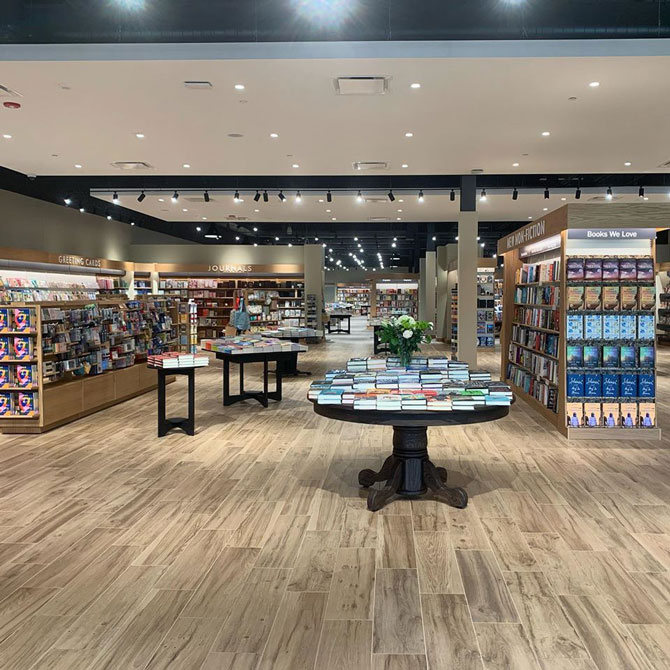 Booksellers will suffer, of course, if they run out of stock on titles in demand and the titles that differentiate them. As Barnes & Noble CEO James Daunt commented: "We're concerned about the unknown author, the first-time novelist who may be down the pecking order in terms of print priorities. Booksellers want to get their hands on them, and the copies aren't there."
Booksellers will suffer, of course, if they run out of stock on titles in demand and the titles that differentiate them. As Barnes & Noble CEO James Daunt commented: "We're concerned about the unknown author, the first-time novelist who may be down the pecking order in terms of print priorities. Booksellers want to get their hands on them, and the copies aren't there."
Last week, in Bookselling This Week, ABA CEO Allison Hill outlined the challenges facing booksellers in the fourth quarter and steps they can take. She noted that "demand for books has been high during the Covid pandemic and is expected to remain high. The combined impact of stores closed due to shelter-in-place mandates and consumers fearful of crowds could drive online demand to unprecedented highs.
"At the same time, publishers and wholesalers will be filling orders more slowly due to social distancing at their warehouses. Printers, also at reduced capacity due to social distancing, may not be able to reprint out-of-stock books in a timely manner. Every link in the supply chain can be slowed down by a Covid diagnosis and the subsequent work halt and cleaning requirements. The USPS cuts will slow down delivery service and shift shipping to the already overburdened UPS, which is now implementing surge pricing for large customers; it's yet to be seen whether that will trickle down to stores."
Among measures taken and advice offered by the ABA to help booksellers this season are a fall marketing campaign for indie bookstores; an education series on preparing for the fourth quarter; tips for buying books that reflect readers' changing tastes during the pandemic; how to bolster online services; developing contingency plans; and much more. --John Mutter
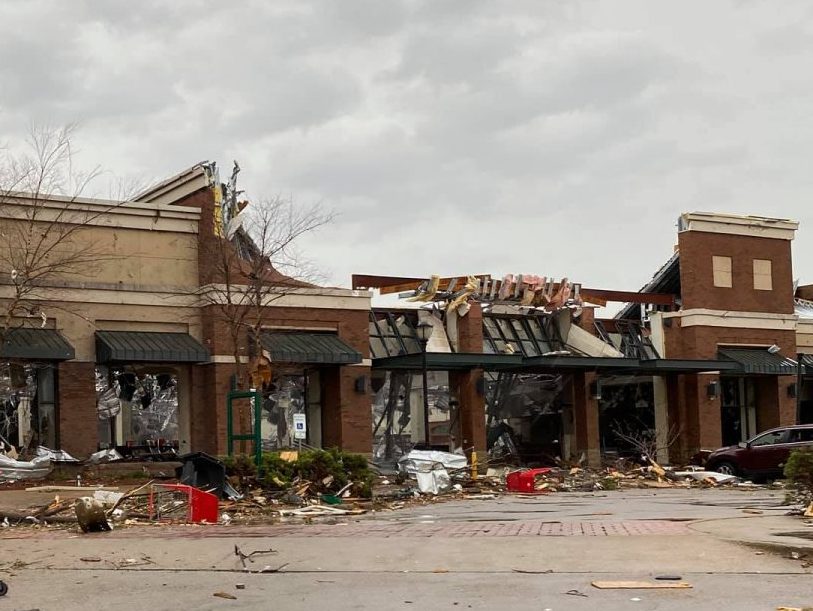



SHELFAWARENESS.1222.S1.BESTADSWEBINAR.gif)


SHELFAWARENESS.1222.T1.BESTADSWEBINAR.gif)
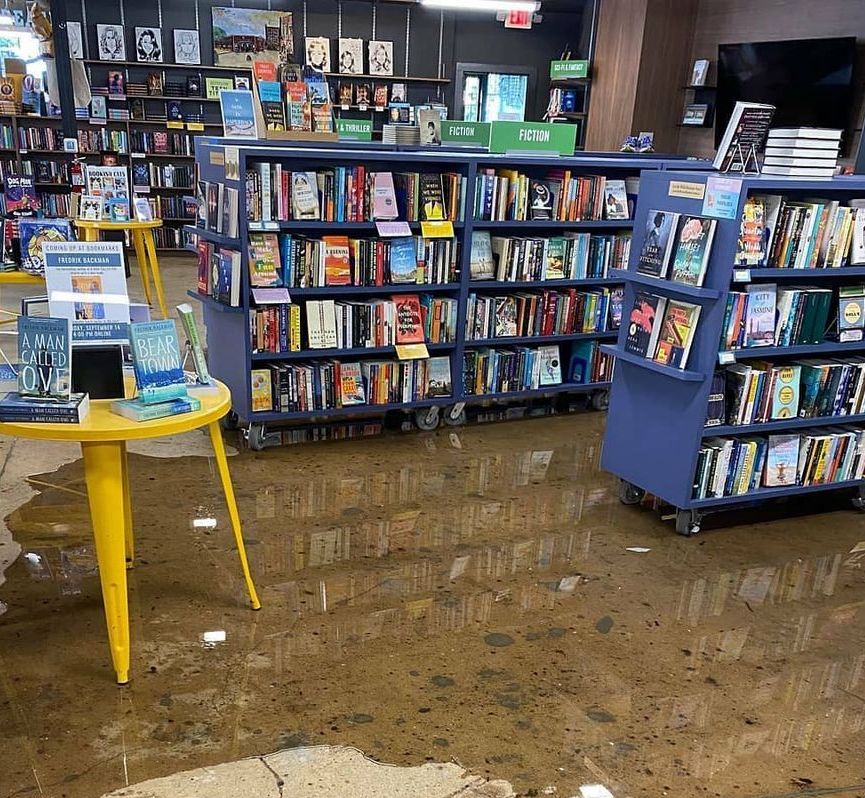
 With Labor Day weekend marking the unofficial end of summer, the most challenging fall and holiday bookselling season in memory is beginning. Book sales continue to climb slowly out of the huge hole created by the spring lockdown--online sales are generally strong and many stores have reopened, taking an array of safety measures. Still, most stores have lost significant sources of sales, including from in-store events, off-site conferences and other events that aren't being held, school sales--and from fewer customers able to browse and find books they hadn't been seeking. And this holiday season will be affected by a bitter presidential election that may not be settled immediately, the ongoing pandemic, widespread unemployment and a battered economy.
With Labor Day weekend marking the unofficial end of summer, the most challenging fall and holiday bookselling season in memory is beginning. Book sales continue to climb slowly out of the huge hole created by the spring lockdown--online sales are generally strong and many stores have reopened, taking an array of safety measures. Still, most stores have lost significant sources of sales, including from in-store events, off-site conferences and other events that aren't being held, school sales--and from fewer customers able to browse and find books they hadn't been seeking. And this holiday season will be affected by a bitter presidential election that may not be settled immediately, the ongoing pandemic, widespread unemployment and a battered economy. Another wild card is spending. "Because some people are not spending on eating out and going to the theater and traveling, they actually have extra money to buy an aspirational product, which helps luxury and higher-end products," Marie Driscoll, managing director of luxury and fashion at the research firm Coresight Research, told the Times.
Another wild card is spending. "Because some people are not spending on eating out and going to the theater and traveling, they actually have extra money to buy an aspirational product, which helps luxury and higher-end products," Marie Driscoll, managing director of luxury and fashion at the research firm Coresight Research, told the Times. Supply Chain Pressure
Supply Chain Pressure Booksellers will suffer, of course, if they run out of stock on titles in demand and the titles that differentiate them. As Barnes & Noble CEO James Daunt commented: "We're concerned about the unknown author, the first-time novelist who may be down the pecking order in terms of print priorities. Booksellers want to get their hands on them, and the copies aren't there."
Booksellers will suffer, of course, if they run out of stock on titles in demand and the titles that differentiate them. As Barnes & Noble CEO James Daunt commented: "We're concerned about the unknown author, the first-time novelist who may be down the pecking order in terms of print priorities. Booksellers want to get their hands on them, and the copies aren't there." Last Thursday, the American Booksellers Association's e-newsletter edition of the Indie Next List for September was delivered to nearly 700,000 of the country's best book readers. The newsletter was sent to customers of 180 independent bookstores, with a combined total of 694,465 subscribers.
Last Thursday, the American Booksellers Association's e-newsletter edition of the Indie Next List for September was delivered to nearly 700,000 of the country's best book readers. The newsletter was sent to customers of 180 independent bookstores, with a combined total of 694,465 subscribers. "
"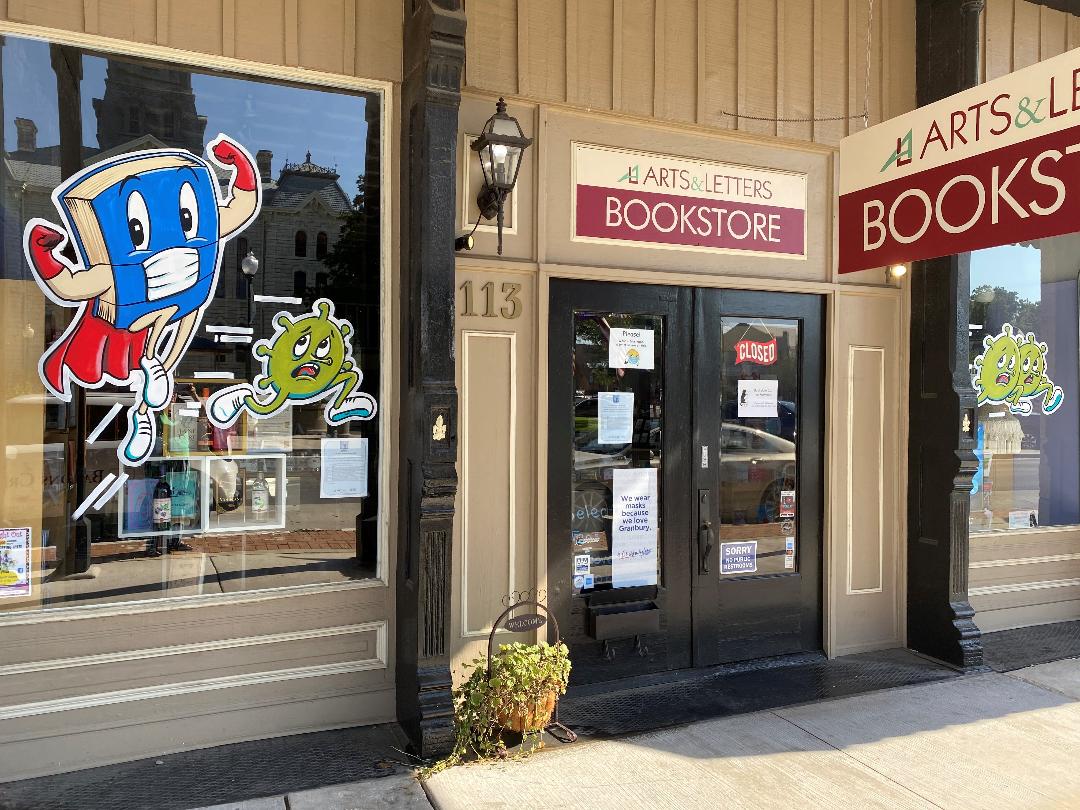 From Roxanne Laney, owner of
From Roxanne Laney, owner of 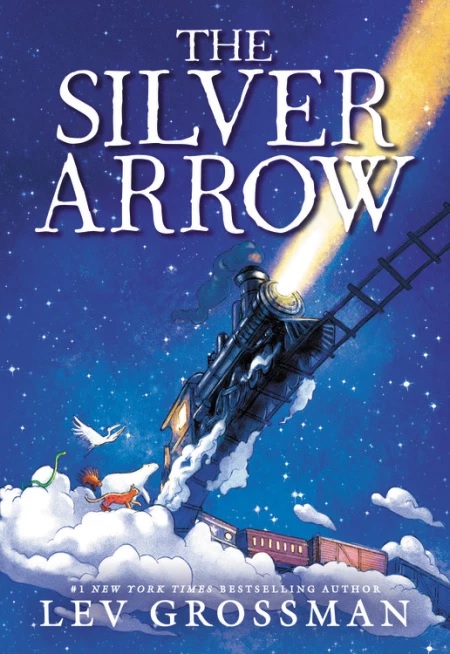 Pennie Clark Ianniciello, Costco's book buyer, has chosen The Silver Arrow by Lev Grossman (Little, Brown, $16.99, 9780316539531) as her pick of the month for September. In Costco Connection, which goes to many of the warehouse club's members, she wrote:
Pennie Clark Ianniciello, Costco's book buyer, has chosen The Silver Arrow by Lev Grossman (Little, Brown, $16.99, 9780316539531) as her pick of the month for September. In Costco Connection, which goes to many of the warehouse club's members, she wrote:  This Is Ohio: The Overdose Crisis and the Front Lines of a New America
This Is Ohio: The Overdose Crisis and the Front Lines of a New America Winner of the 2019 Veterans Writing Award, chosen by Tobias Wolff, Dewaine Farria develops his extraordinary debut novel, Revolutions of All Colors, through exquisite snapshots scattered among the decades. In 1996, Ettie Moten is an Oklahoma state prison counselor and single mother raising Simon, the son of a recently deceased Black Panther whom she first met in New Orleans in 1970. But she's not alone. Her longtime colleague Frank Mathis, the deputy warden and a Vietnam veteran, has taken the teenager under his wing alongside his own two sons. As a result, Simon, Michael and Gabriel form a bond of brotherhood that flowers into the 21st century, as they stake their claims on a world that will never cut them slack.
Winner of the 2019 Veterans Writing Award, chosen by Tobias Wolff, Dewaine Farria develops his extraordinary debut novel, Revolutions of All Colors, through exquisite snapshots scattered among the decades. In 1996, Ettie Moten is an Oklahoma state prison counselor and single mother raising Simon, the son of a recently deceased Black Panther whom she first met in New Orleans in 1970. But she's not alone. Her longtime colleague Frank Mathis, the deputy warden and a Vietnam veteran, has taken the teenager under his wing alongside his own two sons. As a result, Simon, Michael and Gabriel form a bond of brotherhood that flowers into the 21st century, as they stake their claims on a world that will never cut them slack.